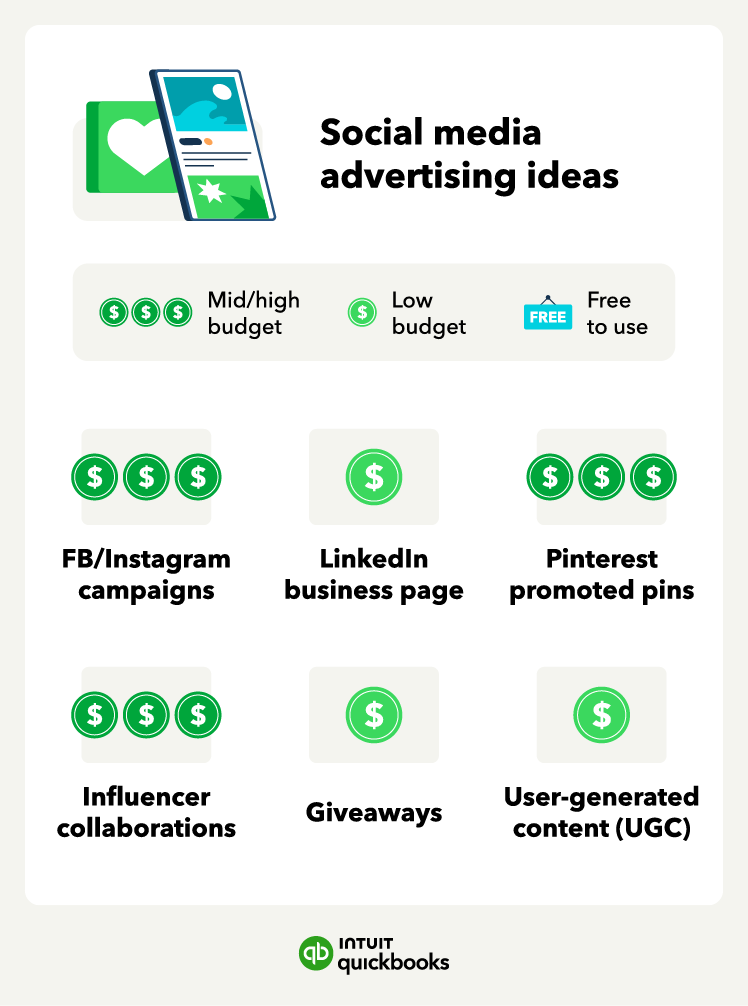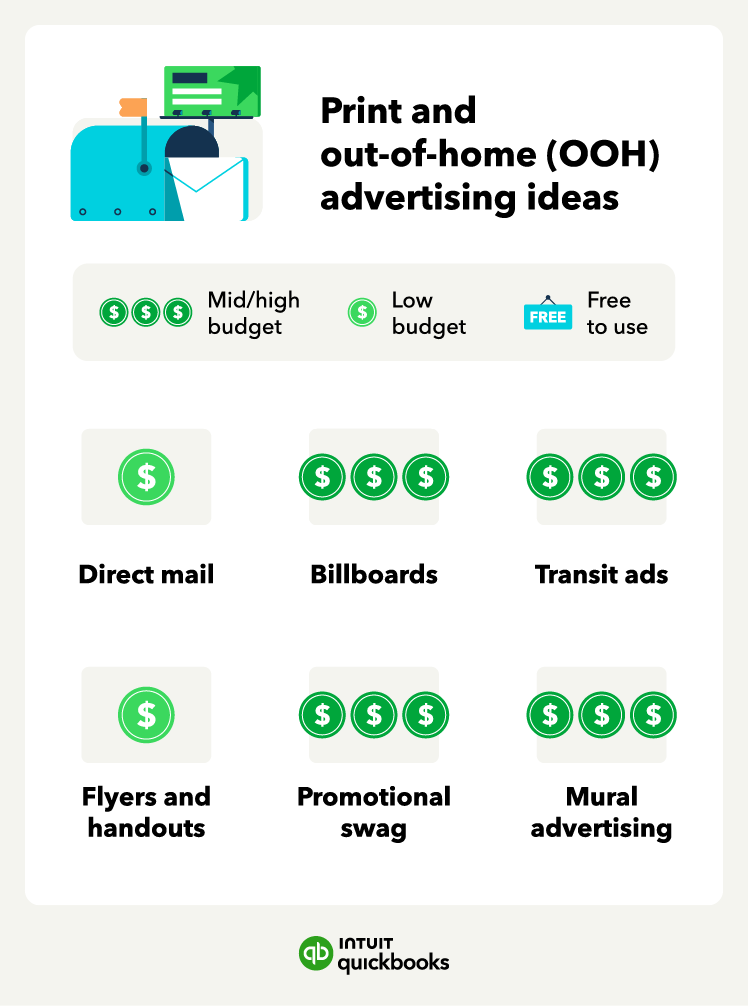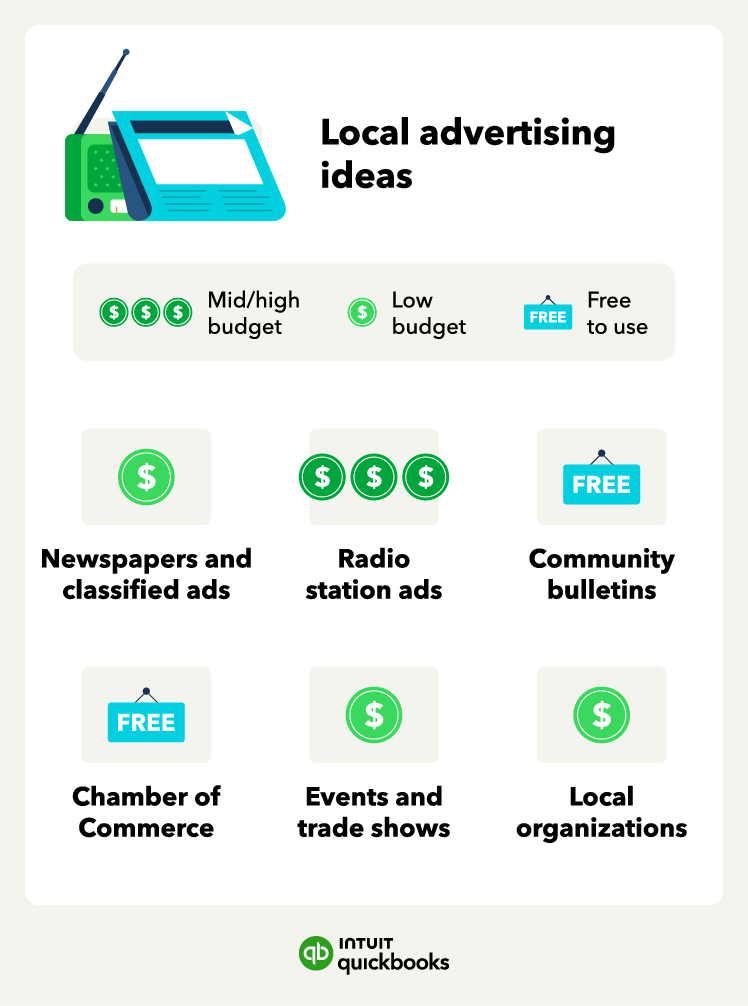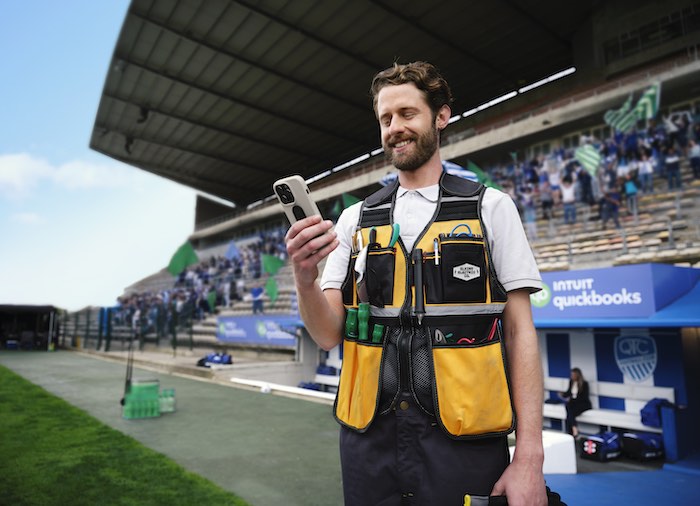2. Increase brand visibility with banner and display ads
Banner and display ads are some of the most common forms of online advertising. They're static or animated visuals promoting a product or service, and they're meant to drive immediate sales. Banner and display ads run at the top and sides of most media and publication websites as well as many blogs. You generally pay based on the number of impressions or clicks your ad has gotten.
For effective small business advertising, identify websites that are highly targeted to your customers, such as local news media websites to capture local customers. Alternatively, you can buy display ads on an ad network, like the Google Display Network, which spreads your message across a collection of websites. An ad network saves the effort of contracting with individual websites for placements.
3. Tap into the power of email lists
Creating an email list to send newsletters, updates like product or service launches, and promotions lets you connect with existing and potential customers on your own terms. Email marketing creates brand awareness, connection points, and opportunities for repeat sales. Because email subscribers have opted in to communications, they tend to provide a high return on the invested time. Services like Mailchimp make it easy to maintain email lists, build and design emails with AI, and increase engagement through personalization.
Small businesses can also grow through sponsoring other people’s newsletters, which allows you to reach highly targeted audiences. Independent newsletters, podcast hosts, and community email lists often offer affordable sponsorship slots that put your brand in front of engaged readers.
4. Create content for YouTube
With 6 billion visits in September 2025, YouTube is the second-most visited website in the world, according to Semrush. As a Google-owned company, YouTube's search function is powerful, and its videos are increasingly showing up in Google search results—creating an even larger opportunity for visibility. (Google is the top-most visited website in the U.S., with nearly 24 billion visits in September 2025.)
You can promote your business on YouTube by creating organic video content. Your videos should include keywords in the audio, captioning, and description that speak to your audience, location, and business type. You can also pay for ads that play during others' videos or that appear elsewhere on the site. Target customers via keywords or specific demographics, interests, and topics.
5. Find your customers with Facebook content
With billions of daily users, Meta’s Facebook is a great platform if you’re looking to reach a large audience, particularly of millennials and older generations. By creating a Facebook business page, you can create native posts or start running advertising campaigns across the platform.
Facebook ads can be tailored to your specific campaign goals and budget. Start an ad campaign by selecting your objective, such as getting more messages, promoting your business page, or attracting more website visitors. You can also set a daily budget starting at $1 and determine how long you want your ad to run. Your budget determines how many people the ad can reach.
6. Post photos, graphics, and videos on Instagram
Instagram is a social media platform that leverages photos, graphics, and videos. Its users are largely millennials and Gen Z, so it's a good place to advertise to younger generations. Post organically for free, or set up a business page to use Meta's platform to boost posts or buy ads.
Running ad campaigns on Instagram can help you reach your target audience by setting up ads based on location, interests, and behaviors. The setup process is nearly identical to Facebook; both platforms use Ads Manager via Meta for Business. Instagram Shop offers a route to direct social commerce sales for app users.




















